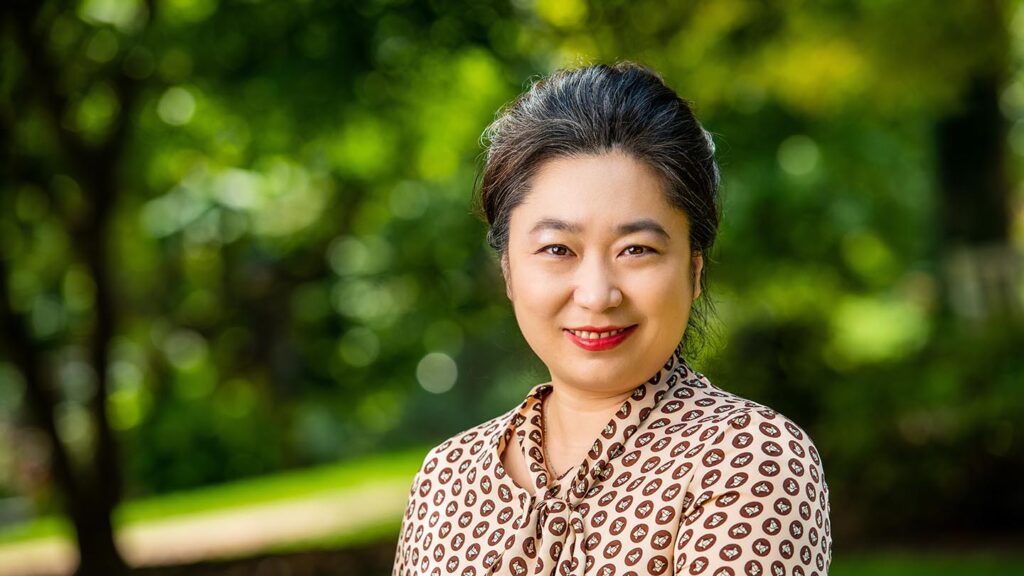Notice of Online Archive
This page is no longer being updated and remains online for informational and historical purposes only. The information is accurate as of the last page update.
For questions about page contents, contact the Communications Division.
Assistant professor of religious studies completed her master's degree at Stanford University and Ph.D. at University of California, Irvine

Xu Ma
I study: East Asian religions, history, culture, and gender issues (roughly spanning the 16th through 19th centuries)
Why: “Both my pedagogy and research on East Asian religions are grounded in a conviction that religious culture should help students develop an appreciation for and commitment to diverse human experiences. I always remind myself and my students that we acquaint ourselves with new religious traditions not to seek superiority over others or hierarchize societies, but rather to broaden and deepen our respect for and understanding of diverse civilizations in an increasingly integrated world. This is why I insist on a comparative and interdisciplinary approach in my class of religious studies. I believe that the study of different religious traditions is, at heart, a humanistic enterprise that affirms and advocates religious pluralism and cultural diversity.”
Ready for fall: “One of my last key objectives as a professor is to nurture ‘religious literacy.’ My students are encouraged to read carefully, listen attentively, think critically, and argue cogently when encountering and examining various religious phenomena within all kinds of contexts. That is why I dedicate a large portion of my class time to group discussion and projects so as to get students in the habit of articulating their ideas and thinking through difficult questions collaboratively and in real time. This exercise enables students to regard their argumentation as scholars do: as a sometimes heated but always friendly dialogue that requires one to tinker constantly with one’s own ideas in the process of engaging with one’s interlocutors.”
In my (virtual) classroom: “I’ll be giving the students multimedia materials and integrating videos and online sources to help them understand the far-away or exotic civilizations. I’d also like to engage the students more by preparing reading materials or videos with questions and puzzles so that in the meantime, they will have to tackle all the tasks while watching/reading. I hope to use as many different strategies as possible to give them more opportunities to interact with both the instructor and their peers. I hope everyone can play a role on a team and be dependent on others.“
Moment of zen: “Somehow I feel that the virus to a certain degree motivated and facilitated me to complete my dissertation and Ph.D. degree in a timely manner. Perhaps this ‘blessing in disguise’ is what an ancient Chinese philosopher Laozi said—apparent disaster or loss could turn into or lead to good fortune and success.”
What I love about Lafayette: “Lafayette is a very prestigious liberal arts college with an extraordinarily scenic campus, brightest students, and most congenial academic community. All the colleagues I have met so far are all working with admirable passion and impressive efficiency. It provides an ideal workplace for me.”
What I like about Easton: “This is my first time on the East Coast. I spent seven years in California after I came to the U.S. The constant sunny days in California can be super lovely and also dull. I enjoy very much the more humid and rainier summer here in Easton as it resembles very much my hometown back in China. I have missed so much the well-pronounced four seasons since I left home, and now I am thrilled to embrace the four seasons and feel like home again in Easton.”
